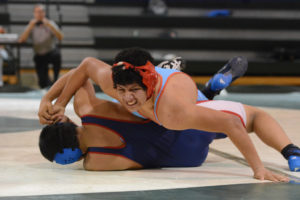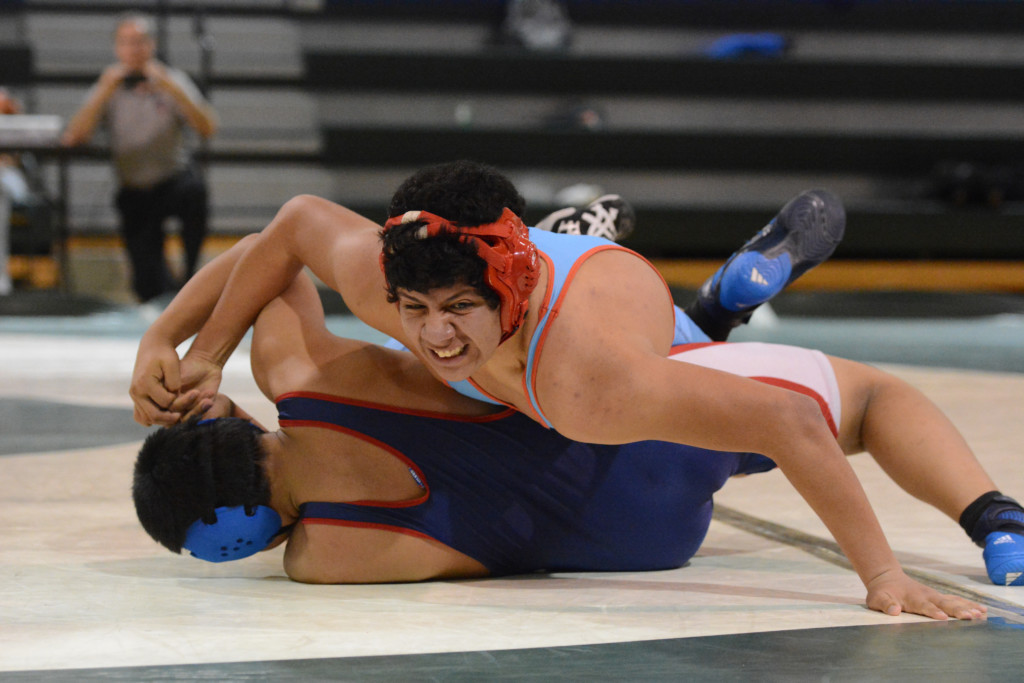
Wrestling, an athletic practice of physical dominance, requires maintaining peak physical and mental shape both in and out of season. With practices all week and tournaments most weekends, wrestlers meet with a number of health and wellbeing challenges.
“I think the most challenging thing about wrestling is the consistency,” senior and varsity wrestler Marco Villarreal said. “You’re never not wrestling because you’re always watching your weight or always doing things to be on weight no matter where you are.”
This focus on weight stems from an incident in 1997, when three wrestlers died of rapid weight loss from over-exercise and dehydration, causing wrestling standard changes from 1998 to 2006 including weight certification, the process by which a player determines their hydration, body fat and, ultimately, the lowest weight that athlete can reach.
“Basically every official weigh in that you have there’s a certain limit of how much weight you can lose per week and it’s based on that initial weight certification,” junior and varsity wrestler Reza Mirzaiee said. “Usually the coach will want you to go the lowest weight you can that way you have an advantage, because the less fat you have the more of an advantage you have.”
According to Villarreal, head coach Jason Planakis has the responsibility of encouraging healthy habits for athletes.
“[Our coach] never really wants you to be killing yourself, and I think that’s also kind of the purpose of the hydration tests,” Villarreal said. “Like that proves how low you can go and there’s no real excuse not to go that low. It might be hard, but it’s not unhealthy.”
Mirzaiee describes the process of staying in shape as a long-term effort, rather than a sudden drop in weight.
“You’ve been watching your weight all week. It’s something you prepare for, it’s not something you show up for like ‘well, I’m going to lose 10 pounds,’” Mirzaiee said.
Training builds up slowly, leading to the Friday practice before a tournament known as the make weight practice.
“Friday, we’re just working at a constant rate [and] not really doing live situations, but we’re just working to lose weight, so [we] sweat out all the water that [we] can that way you can make weight for Saturday,” Villarreal said.
For junior and varsity wrestler Damian Cabrera, this process allows him to better understand his body’s limits.
“I didn’t think my body could do the stuff that it could do when I started wrestling,” Cabrera said. “There were certain positions I never thought my body was capable of.”
A busy schedule generates additional stress for athletes managing school. Mirzaiee attributes his ability to manage his academics to stamina.
“I like to think of it like a grind when I’m in the winter season,” Mirzaiee said. “I tend to just focus on improving myself in every way possible and not really making space for other activities that distract me from that. It’s about improving my wrestling, it’s about keeping up my grades and it’s about not dying and keeping myself healthy.”
With everything wrestlers combat, Mirzaiee finds comfort in his teammates.
“Wrestling builds really strong friendships,” Mirzaiee said. “Everyone on the team is really close, we endure all of this hardship together and we’re all a family.”
Mirzaiee’s endures these challenges by personally deciding to achieve success despite these obstacles.
“It’s a commitment you make to yourself, and when you succeed and pull through and subject yourself to all of these negative things and you come out on the other side ready for more, that’s the biggest boost I get from wrestling,” Mirzaiee said.
With any demanding sport there will be a lot of sacrifice, but Cabrera attributes their success to these obstacles.
“I think we wouldn’t be the district champions if we weren’t where we are now,” Cabrera said.

